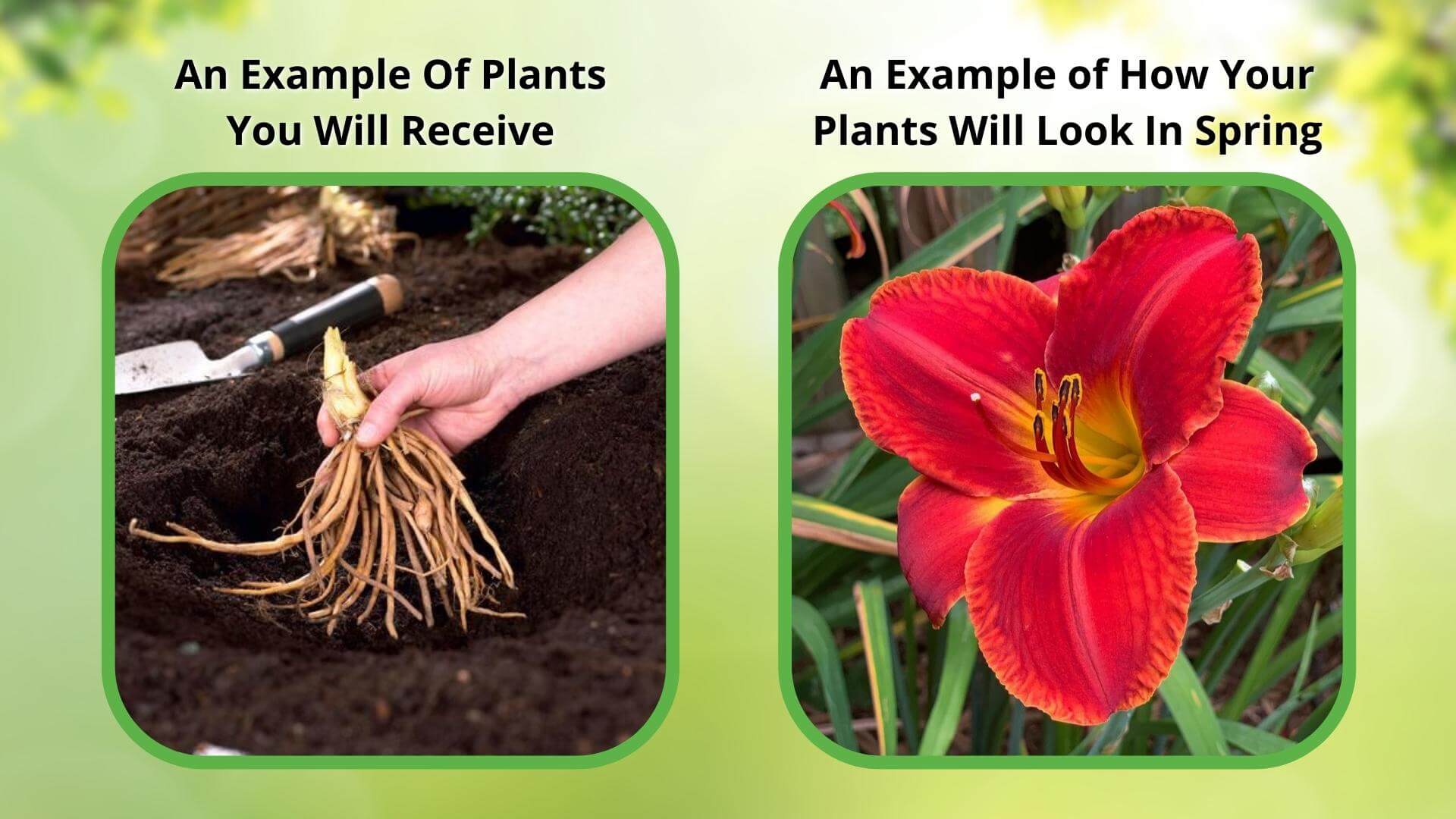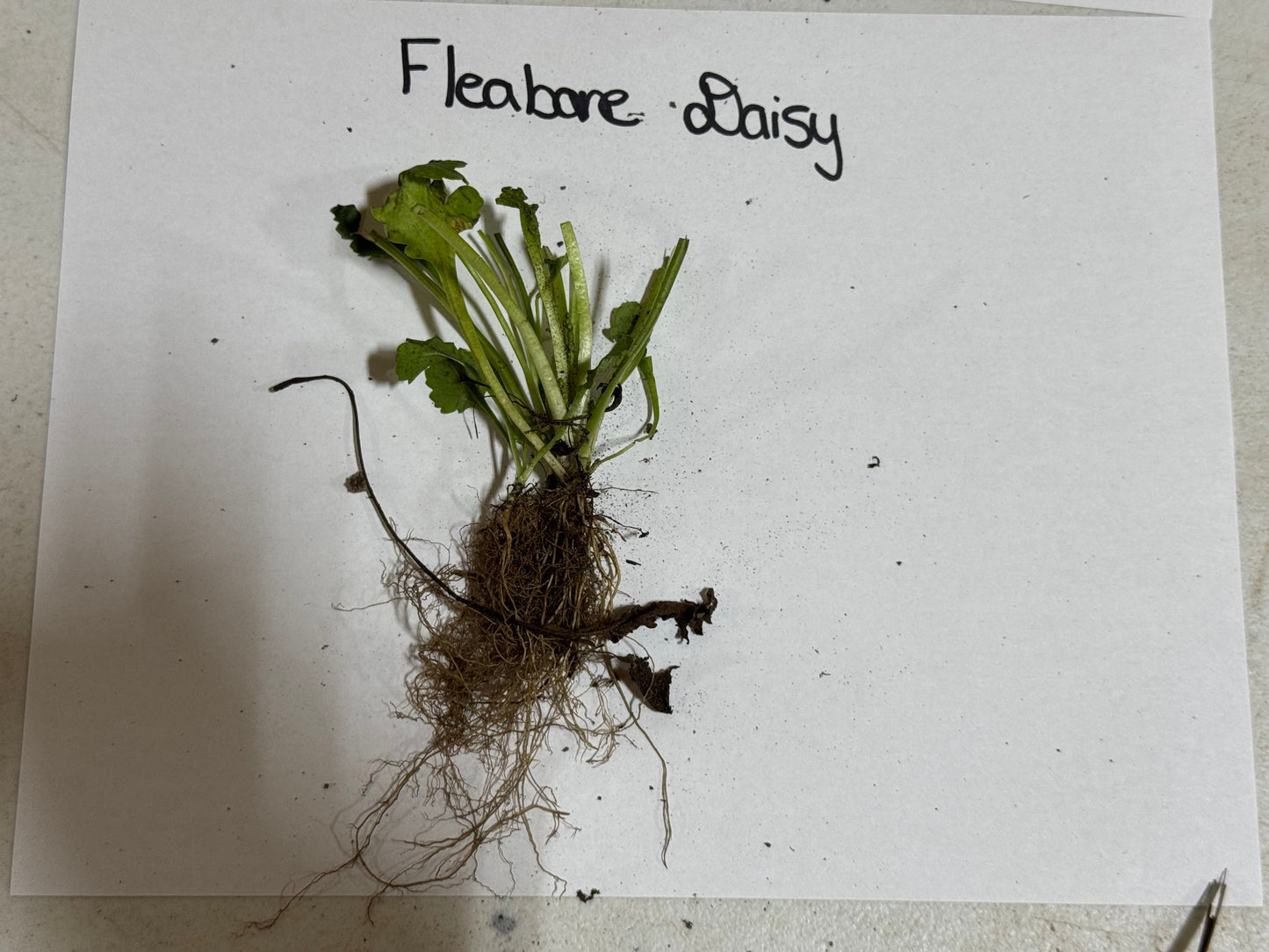Couldn't load pickup availability
🌸When you add 1 plant to cart, it automatically adds the free one
Fleabane Daisy Plant for Sale | Erigeron annuus
The Fleabane Daisy is a sunny blossom in the Asteraceae (or Daisy) family. You might have seen it growing happily on roadsides, in abandoned sites, or along walls, as it thrives in disturbed conditions. It is a hardy plant that is native to North America, found commonly in the east region of the United States. It looks beautiful adorning any garden wall, or in your native plant garden!
Plant Details | Fleabane Daisy Growth & Care Guide
Family: Asteraceae
Light Requirement: Full sun
Water Needs: Moderate
Height: 10 in-2.5 ft
Spread: Up to 2 ft
Growth Rate: Moderate
Soil Preference: Moist, Well-drained
Bloom Time: Summer - Early fall
Flower Color: White, Lavender
Wildlife Value: Bees, butterflies and other pollinators
Key Traits of Fleabane Daisy | Erigeron annuus Plant Facts
The Fleabane Daisy gets its name from its alleged flea-repellent qualities. The plant was once dried and stuffed in pillows and mattresses to keep fleas away from the bed, although there is no evidence that this trick works.
This cheerful blossom is made up of many small petals, up to 40 on one flower, surrounding a bright, yellow center. Their downy, fuzzy textured petals are commonly white, but can also be lavender or light pink. The stem is erect and hairy in some places, with a rosette of spoon-shaped leaves at the base.
Its many branches also carry leaves, and continue all the way up to the top of the stem, ending in flowers. One plant alone can have 40 blossoms alone, helping it fill visual space in your garden.
How to Grow Fleabane Daisy | Soil, Light & Pollinator Benefits
This tiny, white blossom has a wide native range, stretching far over the United States and thriving in many climatic regions. The Fleabane Daisy is a hardy plant that enjoys full or partial sun and well drained soil, but can survive in sandy, moist or clay soils as well.
The plant is sometimes referred to as a weed in the United States because it can establish itself so easily where it may not be wanted, but it is not an aggressive plant. It is very easy to dig up or mow over should you find it in an unwanted area. It's often home to the Crab Spider and the Lynx Nursery Moth, and is very attractive to pollinators.
Its sweet nectar is feasted upon by many native bees and butterflies, while sparrows and finches enjoy its seeds!
This Is How Your Plants Will Look upon Delivery

Bloom Season
Spring
Bloom/Foliage Color
White
Height at Maturity
Over 12"
Care
Fleabane Daisy thrives in well-drained soil and is regularly watered. Deadhead spent flowers encouraging continuous blooming and cut back after flowering to maintain shape. Protect from extreme heat or cold with appropriate care and watch for pests.
Plant Reproduction
Fleabane Daisy can self-sow and spread in clumps in ideal conditions
How to Grow and Care for Bare Root Perennials, Tubers, and Bulbs
Bare root perennials, tubers, and bulbs are an easy and economical way to jumpstart your garden with lasting beauty. These dormant plants should be planted in early spring or fall while the soil is cool and workable. Before planting, soak bare roots in water for 1–2 hours to rehydrate them. Choose a location based on the plant’s light needs—most flowering types prefer full sun, while others thrive in partial shade.
For bare root perennials, dig a shallow hole and spread the roots out naturally, ensuring the crown is level with the soil surface. For tubers and bulbs, plant with the pointed side facing up at a depth about two to three times their height. Cover with soil, gently press down, and water thoroughly.
Keep soil consistently moist (not soggy) until new growth appears. Add mulch to retain moisture and suppress weeds, but avoid covering the crown or bulb tops. Once established, these plants require little maintenance—just seasonal watering, occasional dividing, and deadheading or pruning as needed. With proper care, they’ll return and thrive year after year.
Shipping date depends on the date displayed and chosen when you order from the product's page.
We only accept returns on plants verified dead. If you think your plants have died, we offer a 1 year warranty, please use use this File a Claim Link to verify dead plants and start with return warranty process.




Caring Tips
How do I care for my Fleabane Daisy?
Each box contains detailed care instructions and information about your product. But here's the basics.
Care Tips
Fleabane Daisy thrives in well-drained soil and is regularly watered. Deadhead spent flowers encouraging continuous blooming and cut back after flowering to maintain shape. Protect from extreme heat or cold with appropriate care and watch for pests.
Light Requirements
Fleabane Daisy flourishes in full sun to part shade. It favors at least 4 to 6 hours of unaffected sunlight daily for optimal blooming but can handle some shade, particularly in hotter climates. Proper light exposure encourages vigorous growth and abundant flowers.
Hardy Planting Zones
6 • 7 • 8 • 9
I love the Fleabane Daisy plants I ordered from TN Nursery. They’re hardy, vibrant, and the blooms are picture-perfect. These flowers make my outdoor space more inviting and colorful. I highly recommend TN Nursery for high-quality plants.
My experience with TN Nursery was exceptional. The Fleabane Daisy plants were shipped securely and planted with ease. Now my garden is alive with their charming, delicate
TN Nursery’s Fleabane Daisy plants are perfect for anyone wanting to attract butterflies and bees. Mine arrived in fantastic condition, and the blossoms are simply stunning. It’s been a joy watching them flourish in my yard.
The Fleabane Daisy plants I purchased from TN Nursery arrived lush and full of promise. In just weeks, they bloomed into a delightful burst of white petals with sunny centers. They’re strong, dependable, and absolutely lovely.
TN Nursery provided healthy Fleabane Daisy plants that thrived the moment I planted them. The blossoms are stunning, and they’ve drawn so many pollinators to my garden. I couldn’t be happier with the quality and growth rate.





